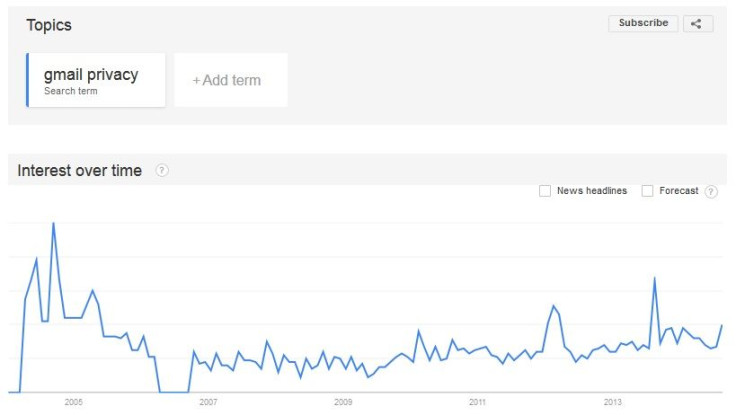Gmail Privacy Concerns Spike After Google’s John Henry Skillern Child Porn Tip

Gmail is once again at the center of privacy concerns following reports this week that a tip from Google Inc. (NASDAQ:GOOG) led to the arrest of a Texas man accused with possession of child pornography.
The man, 41-year-old John Henry Skillern, has been on the Texas sex-offender registry since 1994, when he was convicted of aggravated sexual assault against an 8-year-old boy. Google became aware of an explicit image in Skillern’s inbox after its scanning software matched it with a database of known images of child pornography. Such images are assigned unique digital fingerprints that are used by law-enforcement agencies around the world. After Google became aware of the image, it alerted the National Center for Missing & Exploited Children.
While Google has long been known to scan Gmail messages for the purposes of delivering targeted advertising, the revelation that it is also parsing images attached to those messages has come as something of a surprise to users who are already concerned that the tech giant’s growing appetite for data collection is becoming too invasive for comfort. Since news of Skillern’s arrest broke, web searches for “Gmail privacy” have spiked to their highest level in a year, according to Google Trends.

Katherine Albrecht, a longtime privacy advocate and spokeswoman for the private web company Ixquick, said the latest incident is just another reminder that Google -- and most free email providers, for that matter -- “scans our messages day and night” for a whole host of reasons. While the end result in this case may have been a good one, the practice has broader implications for the basic idea that email users still deserve the presumption of innocence. “If we move to a world where everyone should be scanned all the time in the event that they might commit a crime, the next step is going to be cameras in our bedrooms,” Albrecht said. “It’s going to be the telescreen from George Orwell.”
Google did not respond to a request for comment about its image-scanning policies, but in a statement to AFP Monday, the company stressed that it only scans images for the purposes of identifying child-abuse imagery. It does not, a Google spokesperson insisted, look for images that could be associated with other types of criminal activity. Moreover, companies are mandated by federal law to report images of child exploitation when they see it, so Google was just doing what it was required to do.
But Albrecht said efforts to identify child exploitation don’t justify overly broad privacy policies that give Google and other email providers carte blanche privileges to scan and collect information on every message and attachment that passes through a user’s inbox. “Don’t get me wrong -- everyone is glad that they caught a pedophile,” Albrecht said. “If that’s all they did, we’d be having a different conversation, but this is a wakeup call that they scan everything all the time. If I send a confidential business plan, or medical records, or a tax return as an attachment, they’ve actually given themselves the right to open it up and scan all the material out of it.”
Gmail has been at the center of privacy concerns since before it was even launched. In 2004, Albrecht was one of 31 privacy advocates who signed an open letter urging Google to halt the service until such concerns could be adequately addressed. Then, as now, advocates were concerned with Gmail’s “email-scanning infrastructure,” which allows it to scan each message that arrives in users’ inboxes for the purposes of delivering relevant advertising. The letter warned of letting the “proverbial genie out of the bottle,” normalizing scanning technology and opening the floodgates for a culture in which massive amounts of sensitive data are shared in exchange for free services.
A decade later, Albrecht said everything she and her colleagues predicted has come true -- and then some -- thanks to the explosion of free cloud-based services and smartphone apps. “Gmail was the turning point,” she said. “The model now, in 2014, is one where all free services are really in existence to give you a playground to reveal your personal information. If I download a free app, 99 out of 100 are free because they’re helping themselves to my GPS coordinates, or contact lists, or something else.”
That’s the double-edged reality of the culture of free. Big data may have helped catch a pervert this week, but Albrecht said we have to ask ourselves how many stalkers and creeps are enabled by the very same data that is being surreptitiously collected. “For every one person who is stopped, there are probably a thousand others,” she said. “It’s thanks to Google setting the direction back in 2004.”
Got a news tip? Email me. Follow me on Twitter @christopherzara.
© Copyright IBTimes 2024. All rights reserved.












